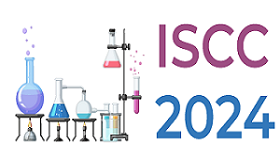ISCC 2024

University of Calcutta, India
Title : Phenol removal from wastewater using innovative biological and industrial wastes as adsorbents
Abstract:
This research aims for adsorptive removal of phenol from wastewater by solid waste materials generated from biological wastes viz. guava tree bark, rice husk, neem leaves, activated carbon from coconut coir and industrial wastes viz. rice husk ash, red mud, clarified sludge from basic oxygen furnace, activated alumina. The adsorbents are characterized by SEM, XRD, FTIR and BET analyzers. The experiments of phenol removal are carried out with the variation of initial phenol concentration (5-500 mg/L), initial pH (2-12), adsorbent dose (0.10-20 gm/L), temperature (25-50°C) and contact time (30-600 min). The maximum phenol removal percentage through batch absorptions has been found to be as high as 97.50%. The kinetics analysis with the experimental results shows that the pseudo-second order model is best fitted for all adsorbents except red mud. The kinetic modelings show that the adsorption mechanism is supportive of film diffusion, intra-particle diffusion and chemisorption for all adsorbents. The isotherm analysis suggests that Freundlich isotherm model is best supportive for guava tree bark, rice husk, neem leaves, activated carbon, red mud and activated alumina, whereas Langmuir and D-R isotherm are best supportive for rice husk ash and clarified sludge respectively. The thermodynamics shows the spontaneity, randomness and endothermic/exothermic nature of the adsorption processes. The ANN modelling using two popular algorithms viz., Levenberg-Marquardt and Scaled Conjugate Gradient establishes that the experimental and predictive data are within allowable range. The scale-up designs are performed for their commercial applications. The regeneration and the safe disposal of used adsorbents are also studied for checking their wider industrial applicability. Further, the column study is also extensively carried out using the most efficient batch adsorbent neem leaves. The study concludes that these adsorbents can be used commercially for removal of toxic phenol from wastewater.
Biography:
Ashanendu Mandal has
graduated as B. Sc in Chemistry and then B. Tech in Chemical Engineering from
University of Calcutta. He has got his M. Tech Degree in Chemical Engineering
from IIT, Kharagpur. He has acquired MBA degree in Finance from IGNOU, New
Delhi and has undertaken an Advanced Management Program from IIM Calcutta. He
has also acquired the Degree of Ph. D. (Tech) in Chemical Engineering from
University of Calcutta.
